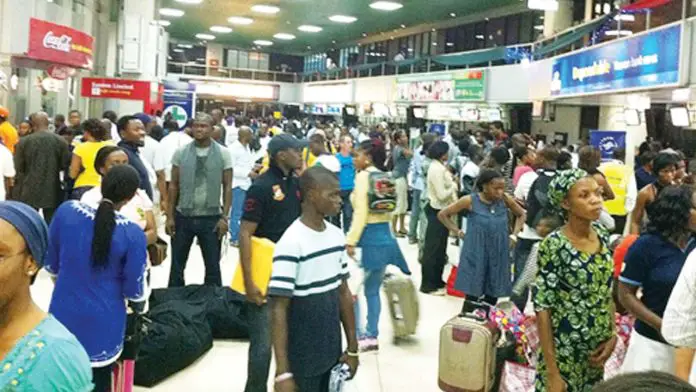The Nigerian Civil Aviation Authority (NCAA) and the Federal Airports Authority of Nigeria (FAAN) have approved the extension of operating hours for sunrise and sunset airports across the country due to an upsurge in traffic occasioned by the festive season.
LEADERSHIP reports that sunset airports are those that operate only between sunrise and sunset. Apart from the five major airports in Lagos, Abuja, Port Harcourt, Enugu, and Kano, which operate 24 hours, other airports typically function between 7 a.m. and 6 p.m.
However, speaking over the weekend, the acting Director-General of the NCAA, Captain Chris Najomo, said capacity is no longer the primary cause of flight delays and cancellations by local airlines. He explained that domestic operators have increased their capacity significantly in recent months.
Najomo stated that airlines could now operate flights into sunset airports during the festive season to mitigate the effects of flight delays and cancellations.
“I have discussed with the managing Director of the Nigerian Airspace Management Agency (NAMA) and FAAN about replicating what we did during the Hajj season by increasing sunset airports’ operating hours from 6 p.m. to 10 p.m. for this period. I understand we face manpower challenges, and I’ve spoken to the MDs of FAAN and NAMA about their concerns regarding the cost of diesel to power the airports from 6 p.m. to 10 p.m.,” he explained.
According to Captain Najomo, state governments where sunset airports are located have agreed to provide power supplies to support operations during the festive period.
“I’ve spoken to some state governments and they’ve indicated their readiness to supply diesel. For instance, we’ve upgraded the lighting at Owerri, allowing it to remain open until 10 p.m. However, Benin Airport lacks adequate lighting, so its hours cannot be extended, and the same applies to Akure. Only airports with sufficient lighting infrastructure will have their hours extended to 10 p.m.
“This extension will help mitigate delays, as weather conditions often improve at night during the harmattan season, enabling some flights to operate later,” he said.
The NCAA boss further reiterated that capacity is no longer a limiting factor for local airlines, as domestic operators have significantly expanded their fleets.
“Previously, capacity was a challenge, but now we’ve seen 10–12 additional aircraft from Air Peace, United Nigeria, Ibom Air, and Overland. The issue now is how we manage this capacity. Airlines must avoid overcommitting. If you have 20 destinations but insufficient aircraft, you need to plan for Aircraft on Ground (AOG) scenarios. Without proper AOG planning, disruptions to operational schedules are inevitable. Aircraft are machines, and contingencies must be in place,” he advised.
Meanwhile, the chief executive officer of United Nigeria Airlines, Mazi Ositadinma Okonkwo, attributed flight delays and cancellations primarily to infrastructure deficits.
Okonkwo, while commending the NCAA and FAAN for extending operating hours at sunset airports, highlighted the significant positive impact on airline operations.
“No matter how well we manage our schedules, the lack of adequate infrastructure remains challenging, and we must acknowledge this. The check-in counters are wholly inadequate, and nothing can be done about that in the short term. Screening points are also insufficient, leading to delays. Improvements to airport facilities are urgently needed.
“We are particularly pleased with the extensions at Owerri and Enugu airports. The impact on our business has been tremendous,” Okonkwo stated.





